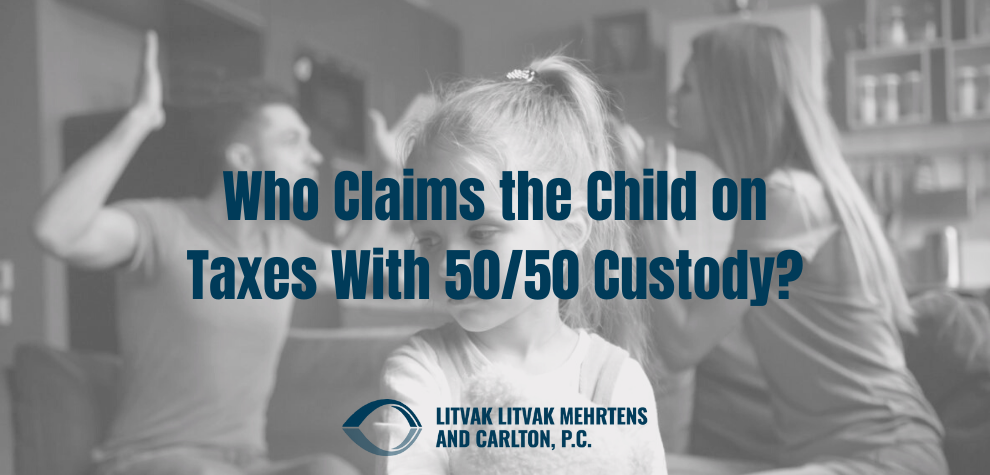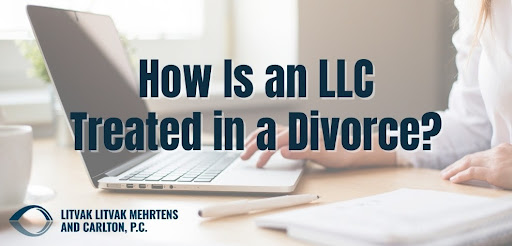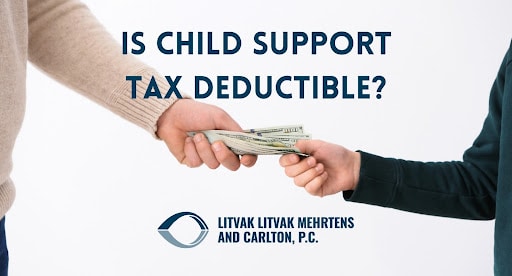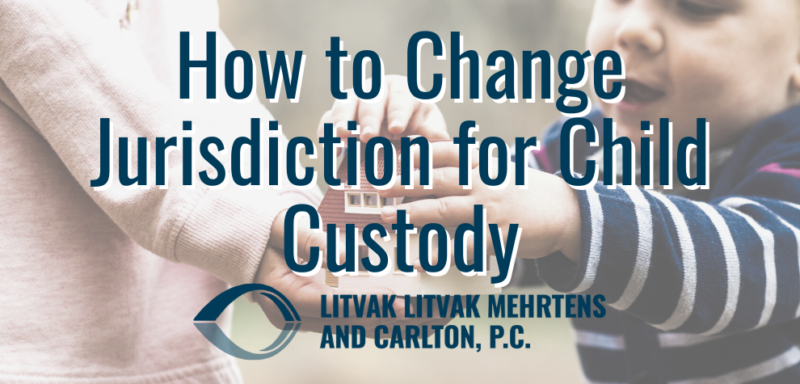Divorce is already complicated because two people have to split physically, emotionally, and financially. Unfortunately, what follows a divorce decree is even more complicated if kids are in the picture. Divorced or separated parents must then decide how they want to raise their child (or multiple children) through a child custody agreement. Another thing that divorced or separated parents have to consider is who claims child on taxes with 50/50 custody. The answer to this common question during a custody arrangement can certainly be complicated depending on the specifics of the case. But it’s nothing that family attorneys at Litvak Litvak Mehrtens and Carlton can’t answer.
If you’re going through a divorce or child custody case, you need an experienced attorney on your side. Call Litvak Litvak Mehrtens and Carlton today at 303-951-4506 to schedule a consultation.
What is a Custodial Parent?
A court order determines which parent is the primary parent. Basically, the custodial parent is the one who:
- Has primary custody of the child
- Spends the most time with the child, specifically 182 days every tax year or more
The noncustodial parent, on the other hand, is obviously the one that doesn’t have primary custody and who doesn’t spend as much time with the child. If a parent happens to be absent, then a court order will deem the remaining parent as the custodial parent. Children will generally live with the custodial parent and receive all physical, emotional, and financial needs from them as well. Additionally, the Internal Revenue Service (IRS) rules that the custodial parent can claim the child as a dependent on their taxes.
Custodial Parent Responsibilities
A custodial and a non custodial parent have their own set of responsibilities when it comes to shared custody. The primary parent must do these things every day:
- Take the child to school, doctor’s appointments, church, and extracurricular activities
- Make sure the child completes all their homework and projects to maintain good grades
- Ensure that the child bathes and brushes their teeth daily
- Ensure the child has all of their basic necessities: food, shelter, water, safety, clothing, hygiene products, etc.
- Make visitation arrangements with the non custodial parent
- Provide the child with all other necessities such as adequate emotional support, love, positive role models, stability, etc.
Physical vs. Legal Custody
Courts give physical custody to the parent with whom the child spends the most time and with whom meets the child’s daily needs. Legal custody refers to a parent’s right to participate in major decisions that affect the child’s well-being. Both parents can have legal and physical custody. This is commonly known as joint custody. Additionally, a single parent can have both legal and physical custody, known as sole custody.
Different Kinds of Child Custody
There are many different types of custody that both parents or one parent can have over their children. Courts grant these different types of custody depending on the specific details of each case.
- Joint physical custody: Both mom and dad are able to see their child on a regular basis.
- Sole physical custody: Only one parent is the custodial parent so the child lives full time with that parent.
- Joint legal custody: Both mom and dad have to agree on major life decisions for their child, like healthcare, religion, education, diet, and more. If the parents can’t decide on issues like this, then the court will decide. In some states, the custodial parent isn’t allowed to move out of state without the other parent’s permission. However, this isn’t the case in Colorado. But the noncustodial parent in Colorado does have the right to petition the court in order to possibly prevent their child from moving away.
- Sole legal custody: Only one parent can decide on major life decisions for the child. The other parent essentially doesn’t have a say.
Legal Custody in Colorado
In Colorado specifically, a court won’t grant joint legal custody unless:
- Both parents can cooperate and make decisions about the child together.
- Parental involvement in the child’s life is loving and supportive. Additionally, both parents must create a healthy environment and relationship with the child.
- Any given authority distribution is more likely to encourage regular interactions between the child and both parents.
Obviously, a court won’t grant joint custody if one parent has a history of abusing or neglecting the child.
Best Interest of the Child
If two divorced parents can’t decide on a parenting plan on their own, a Colorado court will decide based on the best interest of the child, which Colo. Rev. Stat. § 14-10-124 describes. Basically, Colorado law believes that it’s best for the child to have a relationship with both parents. Also, Colorado law believes that both parents should equally raise the child as much as possible. Lastly, Colorado law greatly considers the child’s physical, mental, and emotional health when deciding custody arrangements.
Who Claims Child on Taxes With 50/50 Custody?
So now that we all understand the complexities of custody arrangements, we can move on to the main question: who claims child on taxes with 50/50 custody? Sometimes, your custody order will answer this question already. If the answer to this is already established in your custody order, then you don’t have to worry about IRS rules.
However, if your custody order doesn’t say who should claim the dependent child for tax purposes, then you follow what the IRS says. Basically, the custodial parent claims the dependent child for tax benefits. The only exception to this is if the court says otherwise, or if the custodial parent signs a form called the Release of Claim to Exemption for Child of Divorced or Separated Parents.
But there is no option on tax forms for 50/50 or joint custody. So the parent with the higher adjusted gross income gets to claim the child as a dependent on their taxes, even if they spend zero days per tax year with them.
Who Claims the Child if Both Parents Have Similar Incomes?
If the child’s parents share custody, have similar incomes, and pay nearly the same for the child’s expenses, then they have to alternate years in claiming the child as a dependent on their taxes. Basically, this means that a parent will claim the child one year and then the other parent will claim the child the next year.
Who Claims the Child if Both Parents Have Custody But One Pays More for the Child’s Needs?
So if both parents share parenting time but one pays more for their expenses than the other parent, then both parents claim the child as dependent on alternating years. However, the one who pays more gets to claim the child more often. For example, the one who pays for the most dependent care expenses gets to claim the child as a dependent for three out of four years.
If There Are Multiple Children, Which Parent Claims Which Child?
The court may split the children between the parents for the sake of taxes. Make sure to ask either your attorney or your judge as they create your custody agreement.
Benefits of Claiming Kids on Taxes
The federal tax law seems to change constantly. But as of now, divorced Colorado parents have access to many tax exemptions and tax breaks every year in order to properly provide for their kids.
Dependent Care Credit or Child Care Tax Credit
This child tax credit is for parents who have to pay for daycare or babysitting every day while they work. This benefit, also called the Child Care Tax Credit, is specifically for children under the age of 13 who need daycare or babysitters.
Head of Household
This tax credit is for parents who have to pay more than half of their household bills while caring for at least one child as a dependent.
Earned Income Tax Credit
If one of the parents is working a minimum wage job, they can qualify for earned income credit to help make ends meet.
Child Tax Credit
This tax credit is for parents who have children under the age of 16 years old who need extra financial help that’s not provided by Dependent Care Credit.
Dependent Exemption
This benefit is for parents who:
- Pay for the majority of their child’s needs
- House their child for more than half of the year
- Have a child who’s under the age of 19 (or have a child who’s a full-time student and who’s under the age of 24)
Call a Denver Divorce Attorney Today
If you’ve just received a divorce decree and now you have to formulate a custody agreement and claim a child as a dependent on your taxes, attorneys at Litvak Litvak Mehrtens and Carlton want to help. We will take all the unnecessary stress of this situation off your shoulders by making sure your custody battle goes smoothly. Additionally, we’ll answer all your questions about who gets to claim the child during tax season. For more guidance and information, call us today at 303-951-4506 to schedule a consultation.






